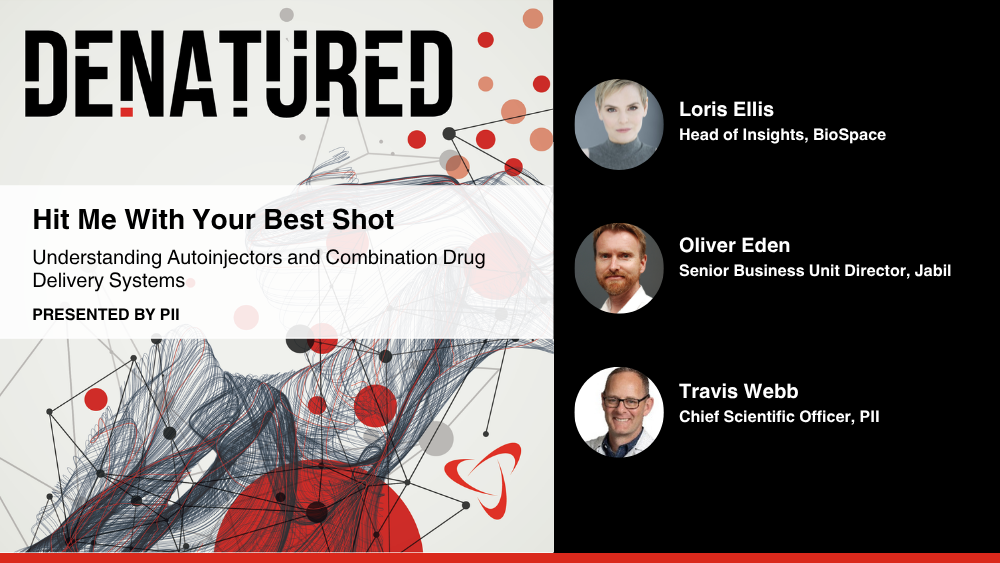JERUSALEM--(BUSINESS WIRE)--Teva Pharmaceutical Industries Ltd., (NYSE:TEVA) today presented results from a post hoc analysis of two pivotal Phase III clinical trials showing that treatment with reslizumab reduced clinical asthma exacerbations (CAEs) by 75 percent versus placebo in a subgroup of patients with late onset asthma (diagnosed at 40 years of age and older) with elevated blood eosinophils, who were inadequately controlled on inhaled corticosteroids (ICS). Reslizumab is a humanized anti-interleukin-5 (IL-5) monoclonal antibody (mAb) for which Teva is seeking approval in the treatment of asthma in patients with elevated blood eosinophils who are inadequately controlled on an ICS-based regimen. These results were presented as a late-breaking abstract at the 2015 ERS International Congress in Amsterdam.
“Through the development of novel, targeted therapies, like reslizumab, Teva aims to provide safe and effective new treatment options to help more patients achieve improved asthma control.”
“Asthma diagnosed after the age of 40 falls into a distinct subtype which is often very challenging to treat,” commented abstract author, Professor Guy Brusselle, Ghent University Hospital, Belgium. “These latest results for reslizumab are therefore particularly encouraging, as they indicate that the drug, in combination with standard of care therapy, may provide these patients with a much-needed new option to help alleviate their symptoms and significantly improve their asthma control.”
In order to determine the influence that age of asthma onset has as it relates to the efficacy of reslizumab, results were pooled from two Phase III clinical trials that investigated reslizumab IV 3 mg/kg in patients who were inadequately controlled on an ICS-based regimen, who had at least one asthma exacerbation within the previous 12 months, and a blood eosinophil count of =400/µL. These post-hoc analysis results indicate that, in the subgroup with late onset asthma, reslizumab showed a 75 percent reduction in asthma exacerbations and improvement in lung function as measured by forced expiratory volume in one second (FEV1). In the overall pooled patient population, asthma exacerbations were reduced by 54 percent; in the subgroup of subjects diagnosed with asthma at <40 years of age, exacerbations were reduced by 42 percent.
Data for this post-hoc analysis were pooled from two identical Phase III clinical trials (which were part of the BREATH clinical program) that comprised four placebo-controlled studies whose population of 1,700 adult and adolescent asthma patients (aged 12-75 years) had elevated blood eosinophils and symptoms that were inadequately controlled with ICS-based therapies. Common adverse events (occurring in >5 percent of patients overall) in the reslizumab treatment group were comparable to placebo and included asthma, nasopharyngitis, upper respiratory infections, sinusitis, influenza and headache. Two patients treated with reslizumab experienced anaphylactic reactions. In both cases, patients responded to standard treatment administered at the study centre. Patients were then withdrawn from participation in the study.
“Asthma is a complex disease, and some phenotypes, such as late onset asthma with elevated blood eosinophils, can present particularly significant treatment challenges that are not adequately addressed by currently available therapies,” said Michael Hayden, M.D., Ph.D., President of Global R&D and Chief Scientific Officer at Teva. “Through the development of novel, targeted therapies, like reslizumab, Teva aims to provide safe and effective new treatment options to help more patients achieve improved asthma control.”
About Reslizumab
Reslizumab is an investigational humanized monoclonal antibody developed to target interleukin-5 (IL-5). IL-5 is a key cytokine shown to play a crucial role in the maturation, activation and survival of eosinophils, which are a type of white blood cell that are present at elevated levels in the lungs and blood of many asthmatics. Evidence shows that eosinophils play an active role in the pathogenesis of the disease. Increased levels of eosinophils in the sputum and blood have been shown to positively correlate with disease severity and increased risk of asthma exacerbations. Reslizumab is thought to act by binding circulating IL-5 and preventing IL-5 from interacting with its receptor.
About Asthma
Asthma is a chronic (long term) disease usually characterized by airway inflammation and narrowing of the airways, the severity and prognosis of which can vary over time. Asthma may cause recurring periods of wheezing (a whistling sound when you breathe), chest tightness, shortness of breath and coughing that often occurs at night or early in the morning. Without appropriate treatment, asthma symptoms may become more severe and result in an asthma attack, which can lead to hospitalization and, in extreme cases, even death.
About Teva
Teva Pharmaceutical Industries Ltd. (NYSE and TASE: TEVA) is a leading global pharmaceutical company that delivers high-quality, patient-centric healthcare solutions to millions of patients every day. Headquartered in Israel, Teva is the world’s largest generic medicines producer, leveraging its portfolio of more than 1,000 molecules to produce a wide range of generic products in nearly every therapeutic area. In specialty medicines, Teva has a world-leading position in innovative treatments for disorders of the central nervous system, including pain, as well as a strong portfolio of respiratory products. Teva integrates its generics and specialty capabilities in its global research and development division to create new ways of addressing unmet patient needs by combining drug development capabilities with devices, services and technologies. Teva's net revenues in 2014 amounted to $20.3 billion. For more information, visit www.tevapharm.com.
Teva's Safe Harbor Statement under the U. S. Private Securities Litigation Reform Act of 1995:
This release contains forward-looking statements, which are based on management’s current beliefs and expectations and involve a number of known and unknown risks and uncertainties that could cause our future results, performance or achievements to differ significantly from the results, performance or achievements expressed or implied by such forward-looking statements. Important factors that could cause or contribute to such differences include risks relating to: our ability to develop and commercialize additional pharmaceutical products; competition for our innovative products, especially Copaxone® (including competition from orally-administered alternatives, as well as from potential purported generic equivalents) and our ability to migrate users to our 40 mg/mL version; the possibility of material fines, penalties and other sanctions and other adverse consequences arising out of our ongoing FCPA investigations and related matters; our ability to achieve expected results from the research and development efforts invested in our pipeline of specialty and other products; our ability to reduce operating expenses to the extent and during the timeframe intended by our cost reduction program; our ability to identify and successfully bid for suitable acquisition targets or licensing opportunities, or to consummate and integrate acquisitions; the extent to which any manufacturing or quality control problems damage our reputation for quality production and require costly remediation; increased government scrutiny in both the U.S. and Europe of our patent settlement agreements; our exposure to currency fluctuations and restrictions as well as credit risks; the effectiveness of our patents, confidentiality agreements and other measures to protect the intellectual property rights of our specialty medicines; the effects of reforms in healthcare regulation and pharmaceutical pricing, reimbursement and coverage; governmental investigations into sales and marketing practices, particularly for our specialty pharmaceutical products; adverse effects of political or economic instability, major hostilities or acts of terrorism on our significant worldwide operations; interruptions in our supply chain or problems with internal or third-party information technology systems that adversely affect our complex manufacturing processes; significant disruptions of our information technology systems or breaches of our data security; competition for our generic products, both from other pharmaceutical companies and as a result of increased governmental pricing pressures; competition for our specialty pharmaceutical businesses from companies with greater resources and capabilities; the impact of continuing consolidation of our distributors and customers; decreased opportunities to obtain U.S. market exclusivity for significant new generic products; potential liability in the U.S., Europe and other markets for sales of generic products prior to a final resolution of outstanding patent litigation; our potential exposure to product liability claims that are not covered by insurance; any failure to recruit or retain key personnel, or to attract additional executive and managerial talent; any failures to comply with complex Medicare and Medicaid reporting and payment obligations; significant impairment charges relating to intangible assets, goodwill and property, plant and equipment; the effects of increased leverage and our resulting reliance on access to the capital markets; potentially significant increases in tax liabilities; the effect on our overall effective tax rate of the termination or expiration of governmental programs or tax benefits, or of a change in our business; variations in patent laws that may adversely affect our ability to manufacture our products in the most efficient manner; environmental risks; and other factors that are discussed in our Annual Report on Form 20-F for the year ended December 31, 2014 and in our other filings with the U.S. Securities and Exchange Commission. Forward-looking statements speak only as of the date on which they are made and we assume no obligation to update or revise any forward-looking statement, whether as a result of new information, future events or otherwise.
Teva Pharmaceutical Industries Ltd.
IR:
Kevin C. Mannix
United
States
215- 591-8912
or
Ran Meir
United States
215-591-3033
or
Tomer
Amitai
Israel
972 (3) 926-7656
or
PR:
Iris
Beck Codner
Israel
972 (3) 926-7687
or
Denise
Bradley
United States
215-591-8974
or
Nancy
Leone
United States
215-284-0213




